Vineyards a hive of activity in Helan Mountains

Wine growers are busy pulling the vines at the east foothill of Northwest China's Helan Mountains as the surface soil thaws in late March.
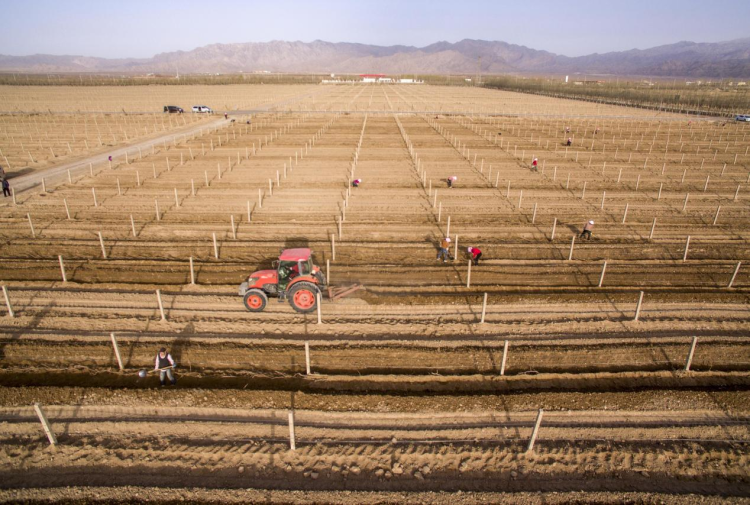
Workers turn the soil to stretch grapevines in Northwest China's Ningxia Hui autonomous region. [Photo provided to chinadaily.com.cn]
The grape vines in the fields need to be buried in winter, then unearthed in spring due to the unique conditions in the Ningxia Hui autonomous region.
Helan Mountain's east foothill, with its epicenter at a latitude of 37 to 39 degrees north, is a good area for wine cultivation. Thanks to the mountains, it enjoys abundant sunshine and large temperature differences between night and day.
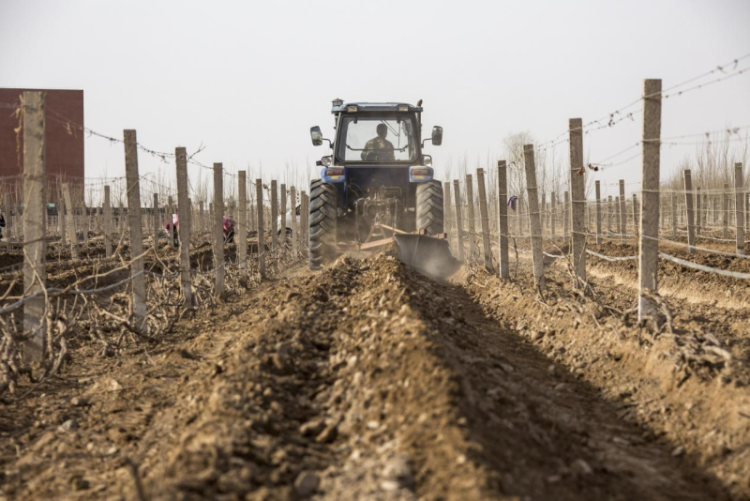
A worker on a tractor plows the vineyard in Northwest China's Ningxia Hui autonomous region. [Photo provided to chinadaily.com.cn]
Ningxia is also the largest concentrated contiguous wine producing area in China. Currently, it has 550,000 mu (36,667 hectares) of vineyards, accounting for one-quarter of the country's total.
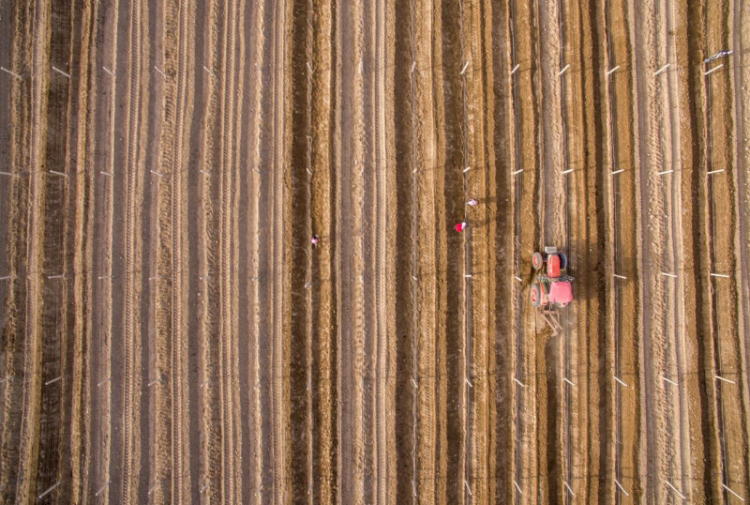
An arerial view of a vineyard in Northwest China's Ningxia Hui autonomous region. [Photo provided to chinadaily.com.cn]
Silver Heights vintner Gao Yuan, who has been employed in the wine industry for more than ten years, said climate conditions must be checked before the grapes can be harvestedh.
She advised digging out samples of both early-maturing and late-maturing varieties and looking up their germination status. A returning cold spell in the late spring will freeze the sprouts, causing some yield loss.
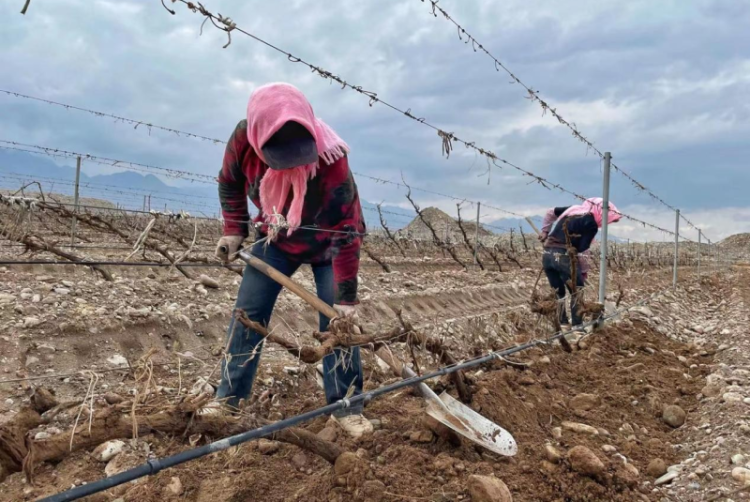
Winegrowers help the vines hang on trellis in Northwest China's Ningxia Hui autonomous region. [Photo provided to chinadaily.com.cn]
Li Xuesen, sales director of Li's Vineyard, arranged 75 workers to make the grapevines 'wake up' after a severe winter.
Jade Vineyard also started waking up its vines on March 29. About 200 workers walked into the fields to stretch the vines and help them hang on trellises.
Owner of the Jade Vineyard, Ding Jian, said the vine-stretching is full of expectations and hopes. But on the other hand, she also fully understands the uncertainty of nature.
"Wine is the juice of the earth," Ding added, "it is precisely the elements of randomness that create wines with rich connotations and surprises."
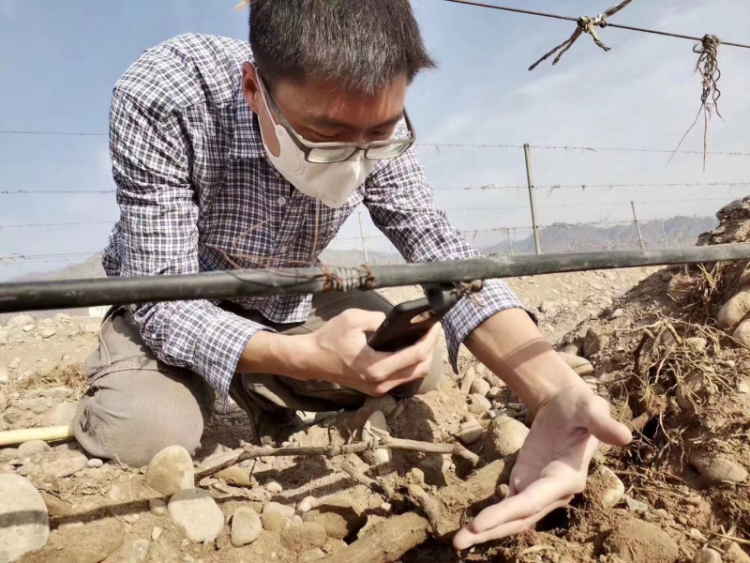
A vintner check the vines in Northwest China's Ningxia Hui autonomous region. [Photo provided to chinadaily.com.cn]
Ding Fei, deputy general manager of FEI TSWEI, said that the vines' stretch is the very beginning of the grape vegetation process. He expects 2022 to be a good year, and Chinese wines to be better received in the market.











.png)
.png)
.png)





